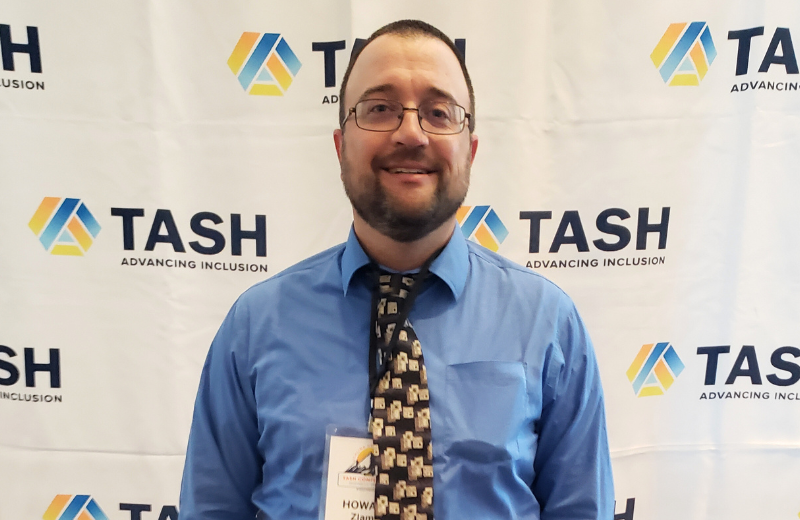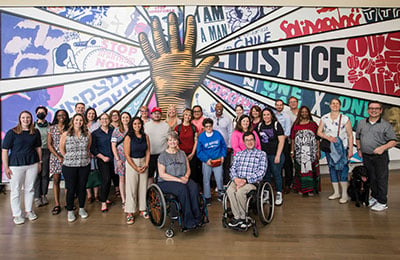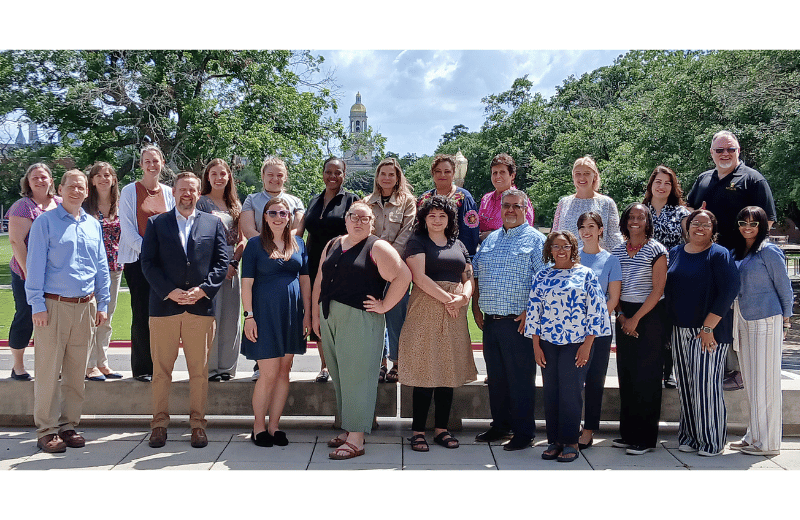
February 13, 2026
ArizonaLEND Faculty Spotlight: Howard Zlamal, Dedicated to Empowering the Disability Community


AUCD’s Community Inclusion Team supports the University Centers for Excellence in Developmental Disabilities (UCEDD) Network in partnership with the Administration for Community Living.

AUCD’s Maternal and Child Health Engagement supports the Autism CARES Programs, including LEND and DBP Programs.

AUCD’s Public Health Team works to create health promotion and public health efforts that include people with disabilities.

AUCD Emerging Leaders are a part of a community that includes trainees, early career professionals, self-advocates, and family members from AUCD member Centers and Programs.
The Council on Leadership in Advocacy (COLA) is made up of individuals with disabilities and family members from each University Center across the AUCD Network. COLA members are involved in Community Advisory Councils at University Centers for Excellence in Developmental Disabilities (UCEDDs), AUCD Councils and Committees, AUCD Special Interest Groups, and other advocacy opportunities. Membership is open to anyone in the AUCD Network. However, each Center will designate an individual representative who will cast one vote when a matter before the Council requires such action.
The mission of the AUCD Council on Leadership in Advocacy (COLA) is to advise and assist the AUCD Network to enhance the quality of life for individuals with developmental disabilities and their families. COLA works to enhance AUCD by fostering and supporting current and new leaders with lived experience of disability, including their family members in order to promote this same leadership in their programs, communities, and regions, and to serve in liaison roles with local disability leadership. The Council helps AUCD:
The purpose of the Council is to enhance AUCD by fostering current and new leaders with lived experience of disability, including their family members, to promote leadership in their Programs and communities. Council membership will expand to include directors, faculty, staff, advisors at Center Programs, and CAC members.
The Council on Consumer Affairs first convened in the fall of 1994; the name was later changed to the Council on Consumer Advocacy. The Council was formed as a result of AUCD's (formerly AAUAP) increasing recognition of the importance of receiving consistent and ongoing consumer feedback. Start-up activities were funded by the Administration on Developmental Disabilities, through a Project of National Significance entitled "Leadership and Choices." Principle support was provided by Bruce Eddy of AUCD and Carl Calkins of the University of Missouri/Kansas City, Missouri's UCEDD.
The Council leadership structure includes several internal committees and two co-chairs. 1998 By-Laws stipulate that one co-chair must be an individual with a disability, and the other be the family member of an individual with a disability. The three-year, staggered co-chair positions carry with them a slot on AUCD's Board of Directors.
Full Council membership consists of one representative of each UCEDD, designated by that UCEDD's director. The Council continues to strive to meet its long-term goal of full membership.
In 2003-2004, AUCD made a commitment to revitalize the role of COCA within the Network. Past President of AUCD, David Johnson appointed an ad hoc COCA Workgroup. This workgroup, chaired by Carl Calkins, solicited feedback from the AUCD Network and met several times to develop a renewed vision to strengthen the role of COCA. A final set of recommendations was produced and presented to the board and UCEDD Directors at the UCEDD Directors' retreat May 2-3, 2005 in Chicago, IL.
February 13, 2026

January 28, 2026

The 2026 AUCD Leadership Academy will be held in Atlanta on June 7-12, 2026. The AUCD Leadership Academy is a week-long intensive experience, paired with a year of pre and post interactions designed to enhance the skills of current and emerging leaders from disability networks to build coalitions to improve systems of supports and services. The Leadership Academy engages participants from UCEDDs, LENDs, IDDRCs and the wider community of disability partners to come together to immerse themselves for a week of study, shared experiences, self-evaluation, and skill development. More
January 26, 2026

Thursday, October 30, 2025
AUCD 2025 National Network Connections - Virtual Networking ActivitiesFriday, February 20, 2026
National Resource Center for Paraeducators Virtual ConferenceThursday, February 26, 2026
Institute for Human Development Announces Third Annual Amplifying Voices of Disability Virtual Day of LearningCopyright 2025 Association of University Centers on Disabilities